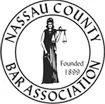Bankruptcy and the Government’s Response to COVID-19

As sad as it may seem, it should come as no surprise to learn that bankruptcy filings are up across the board. Businesses large and small and individual households have all been hit hard financially by the coronavirus, even if their personal health has been spared. Businesses have been forced to close, and people have been thrown out of work. It may still be many months before the country recovers from the economic effects of dealing with COVID-19, and many people, as consumers or business owners, simply won’t be able to cope with the fallout without relying on the protections of bankruptcy. Here we look at some of the different ways bankruptcy helps individuals and businesses that are struggling financially, including how specific government responses to deal with the pandemic directly impact bankruptcy filers.
Make a Fresh Start With Chapter 7
Chapter 7 bankruptcy lets individuals get a fresh start by eliminating most or all of their unsecured debt, such as credit card debt and medical debt. Some people who have heard of Chapter 7 as “liquidation” bankruptcy worry that their property will be taken from them and sold to pay their creditors, but this does not happen very often. When you file for Chapter 7 bankruptcy, you have a large set of exemptions you can use to keep your property safe from bankruptcy. The federal government and New York State each have their own set of exemptions, with some similarities and significant differences. Your bankruptcy attorney can advise you on which set of exemptions are most favorable to you and help you exempt your property. With the help of an experienced bankruptcy lawyer, most people file a “no-asset” bankruptcy and don’t lose any property, while still getting their unsecured debts discharged in bankruptcy.
By now, you have likely received your stimulus check from the government if you were eligible to receive one. This one-time payment was authorized by federal legislation known as the CARES Act (the Coronavirus Aid, Relief, and Economic Security Act). Depending on income and household size, some received checks of $1,200, $2,400, or more. Nevertheless, this payment was still likely not enough to keep some households from needing to file bankruptcy. Under the CARES Act, the stimulus payment is not counted as part of your income or disposable income for Chapter 7. This provision is important since Chapter 7 is means-tested. Only specific individuals are eligible to file Chapter 7 based on their household earnings and disposable income, so excluding the stimulus payment from countable income was an important benefit to individuals needing to file Chapter 7.
Save Your Home With Chapter 13
Homeowners and others with too much income to file Chapter 7 might instead find relief with Chapter 13. This form of bankruptcy allows you to adjust and eliminate some debts while working on a plan to pay back other debts over a three or five-year period. Chapter 13 can help you save your home from foreclosure if you are in default on your mortgage. With Chapter 13, you can catch up missed payments through your plan and possibly reduce the amount you owe on the house by stripping away a second mortgage or cramming down the balance owed on the first mortgage so that it better matches the home’s actual value.
If you are already participating in Chapter 13, the CARES Act allows you to modify your plan if the coronavirus has caused you to experience “material financial hardship.” Rather than having to complete your plan in three or five years, you can get an extension to as long as seven years. Unfortunately, the law is not settled on what exactly counts as a “material financial hardship” required to get the extension. Talk to your bankruptcy lawyer about your particular circumstances to see if you might qualify.
Save Your Business With Chapter 11
Chapter 11 is the primary form of bankruptcy for business owners. It allows them to stay open while they reorganize and restructure to deal with their outstanding debt and become more profitable. Unfortunately, Chapter 11 reorganizations are typically complicated and require a lot of time and money to get through. In February 2020, Congress enacted a new Chapter 11 subchapter to help businesses reorganize faster and less expensively. This law, the Small Business Reorganization Act, or SBRA, applied to businesses with a debt limit of $2.725 million. Under the CARES Act, however, this limit has been raised to $7.5 million, so many more businesses can now take advantage of the streamlined process for Chapter 11.
Find Out How Bankruptcy Can Help You Cope With CPVOD-19 Financial Disruptions
If you are struggling to make ends meet during these difficult times, bankruptcy might be an appropriate step to keep your home or business above water and help you avoid financial disaster. Talk to a skilled and knowledgeable bankruptcy attorney to discuss your needs and concerns and find out if bankruptcy is right for you. In the Hudson Valley, call the Law Office of Taran M. Provost, PLLC at our offices in Dutchess County and Orange County at 845-675-3243.



